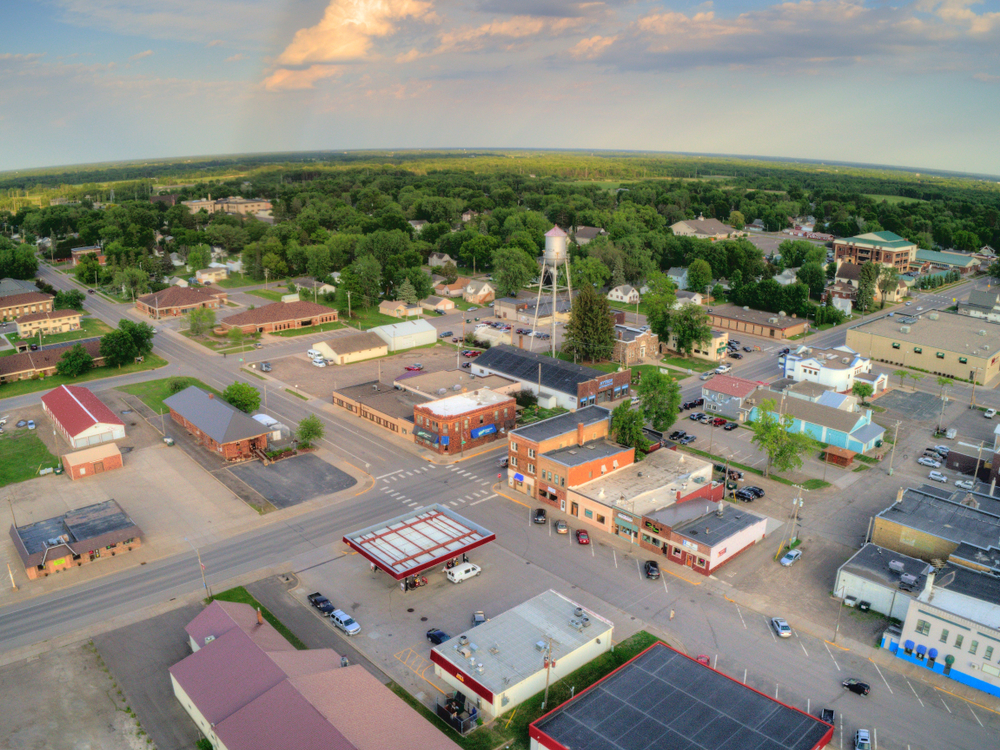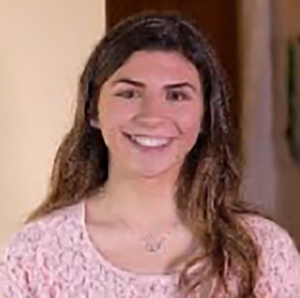
Jacob Boomsma/Shutterstock
.
More than ever, I’m witnessing the power of youth leading movements and using the unique power of their voice to bring attention to important issues that concern young people. For me, that means providing my unique perspective on what it’s like living in rural America today.
Sure, there are some harsh realities that rural communities are facing, such as lack of access to health care and high-speed internet. But, there are also many positive attributes of living in a rural community that I’m proud to say have helped shape me into the person I am today.

Serena Woodard
One of the biggest takeaways I have from my hometown is the importance of feeling safe and supported. In fact, according to a recent Life in Rural America Poll, unlike the rest of the United States, most adults living in rural areas are satisfied with their quality of life and feel safe in their communities.
To me, feeling safe and supported in my community are two of the primary reasons I love calling Eufaula, Okla., my home. So many successes in my community can be attributed to mentors and volunteers who are committed to helping young people succeed. From a young age, youth learn the importance of helping one another and giving back.
Through my involvement in 4-H, the nation’s largest youth development organization, I have learned and retained the life skills of resiliency, patience, public speaking and determination. And once I became one of the older teens in our county 4-H club, I felt a responsibility to pay it forward and pass along the skills I had learned to others.
Because of the opportunities that were presented to me through 4-H, I was able to find my passion and learned the skills I needed to pursue it. However, while I was lucky enough to find a home with 4-H, some of my friends are still struggling to discover their passion in life and where they belong. With only three extracurriculars offered at my school, there are big limitations to what students are exposed to and can learn.
And while many of us do have internet access, a lack of reliable internet is a problem for many families. At my home, if it rains — even just a light sprinkle — there is a high chance the television and wi-fi will go down and sometimes even the powerline. As a student, this was particularly challenging since a majority of homework is now online. The homework gap is a major issue for kids in my community and rural communities across America.
Many rural communities, including Eufaula, are beautiful places to grow up with lots of open land and scenery. But, with everything so spread out, it can be difficult to get important places like the grocery store or a doctor’s office. While people who live in more urban and suburban areas think nothing of making a 10-minute trip to pick up some milk, for families in rural areas the closest grocery store can be more than 30 minutes away. For families who do not own a vehicle, it can be a big challenge to have to rely on others to make sure they have the transportation to work and to pick up necessities for their family. I never had a car nor my license in high school, which made it difficult to get an after-school job or go into town for shopping because I had to rely on my parents or other adults to get places.
As I look to the future, I believe it is critically important that we all, youth included, continue to participate in a dialogue about what’s really happening in rural America and work to ensure that we talk to the people who are experiencing these realities on the ground. While there is not a one-size-fits-all solution that will work for all rural communities, there are trends that we can begin to look at to see where there are areas to make the most positive impact.
From youth like myself, to others who have spent generations building their rural communities, all our perspectives are important as we work to fuel future possibilities for rural Americans. I’m excited to continue to use my voice to dispel the myth that everything in rural America is wrong and highlight all the bright spots that make me and millions of other Americans proud to call rural communities home.
Serena Woodard is a 4-H alumna from Eufaula, Okla. who has held many leadership positions, from local/county president, to state ambassador, to the National 4-H youth spokesperson for agriculture as the 2018 4-H Youth in Action Winner for Agriculture. She is attending Rose State College on a leadership scholarship and hopes to become an ag journalist.































